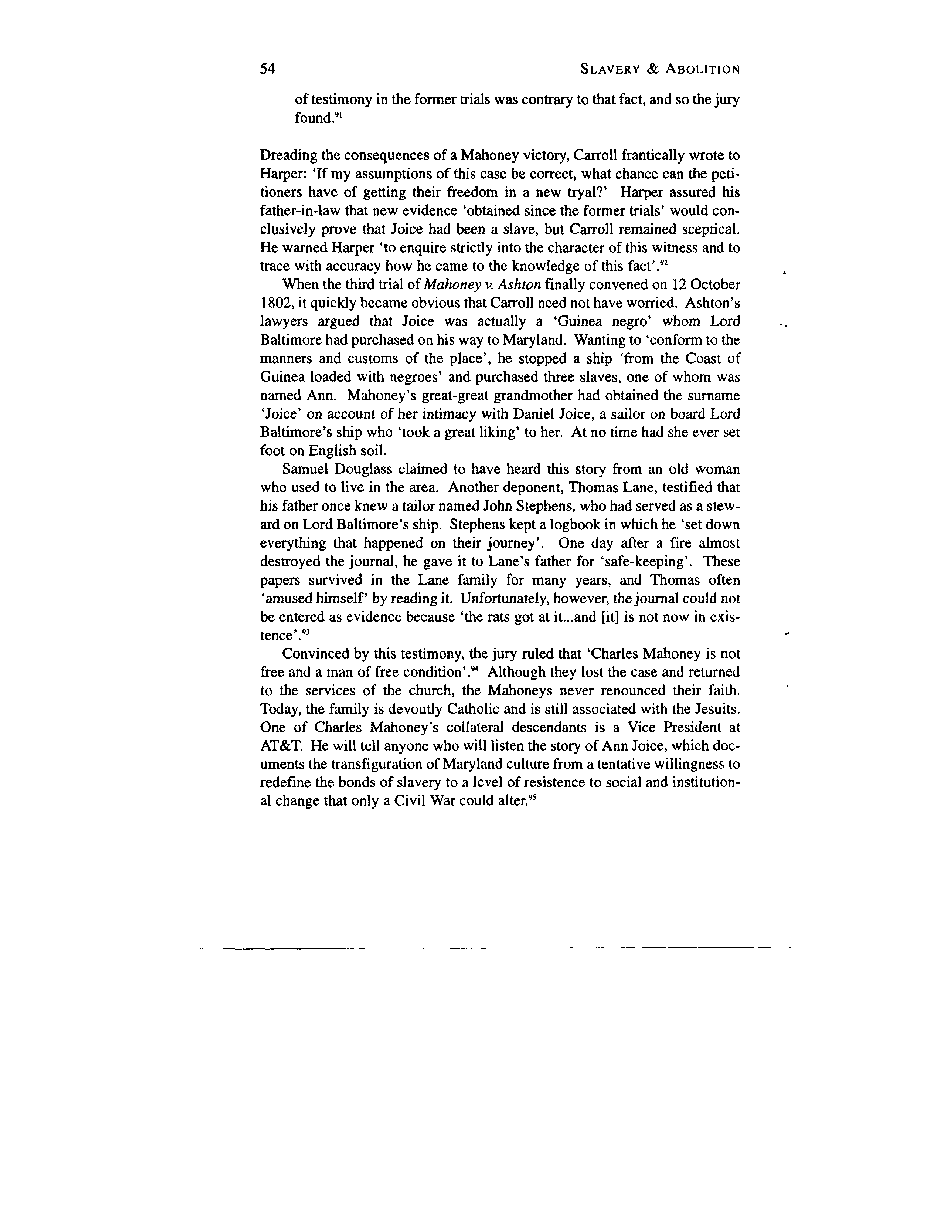|
54 SLAVERY & ABOLITION
of testimony in the former trials was contrary to that fact, and so the jury
found."
Dreading the consequences of a Mahoney victory, Carroll frantically wrote to
Harper: 'If my assumptions of this case be correct, what chance can the peti-
tioners have of getting their freedom in a new tryal?" Harper assured his
father-in-law that new evidence 'obtained since the former trials' would con-
clusively prove that Joice had been a slave, but Carroll remained sceptical.
He warned Harper 'to enquire strictly into the character of this witness and to
trace with accuracy how he came to the knowledge of this fact'.*2
When the third trial of Mahoney v. Ashton finally convened on 12 October
1802, it quickly became obvious that Carroll need not have worried. Ashton's
lawyers argued that Joice was actually a 'Guinea negro' whom Lord
Baltimore had purchased on his way to Maryland. Wanting to 'conform to the
manners and customs of the place', he stopped a ship 'from the Coast of
Guinea loaded with negroes' and purchased three slaves, one of whom was
named Ann. Mahoney's great-great grandmother had obtained the surname
'Joice' on account of her intimacy with Daniel Joice, a sailor on board Lord
Baltimore's ship who 'took a great liking' to her. At no time had she ever set
foot on English soil.
Samuel Douglass claimed to have heard this story from an old woman
who used to live in the area. Another deponent, Thomas Lane, testified that
his father once knew a tailor named John Stephens, who had served as a stew-
ard on Lord Baltimore's ship. Stephens kept a logbook in which he 'set down
everything that happened on their journey'. One day after a fire almost
destroyed the journal, he gave it to Lane's father for 'safe-keeping'. These
papers survived in the Lane family for many years, and Thomas often
'amused himself by reading it. Unfortunately, however, the journal could not
be entered as evidence because 'the rats got at it...and [it] is not now in exis-
tence'."3
Convinced by this testimony, the jury ruled that 'Charles Mahoney is not
free and a man of free condition'.*1 Although they lost the case and returned
to the services of the church, the Mahoneys never renounced their faith.
Today, the family is devoutly Catholic and is still associated with the Jesuits.
One of Charles Mahoney's collateral descendants is a Vice President at
AT&T. He will tell anyone who will listen the story of Ann Joice, which doc-
uments the transfiguration of Maryland culture from a tentative willingness to
redefine the bonds of slavery to a level of resistence to social and institution-
al change that only a Civil War could alter."
�
|

